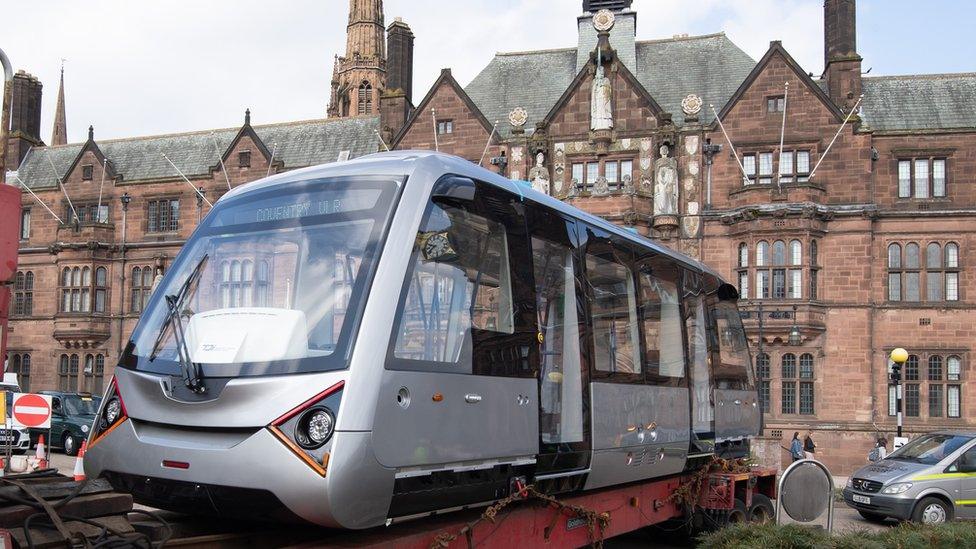Coventry's Very Light Rail plans face delays after early funding bid rejected
- Published
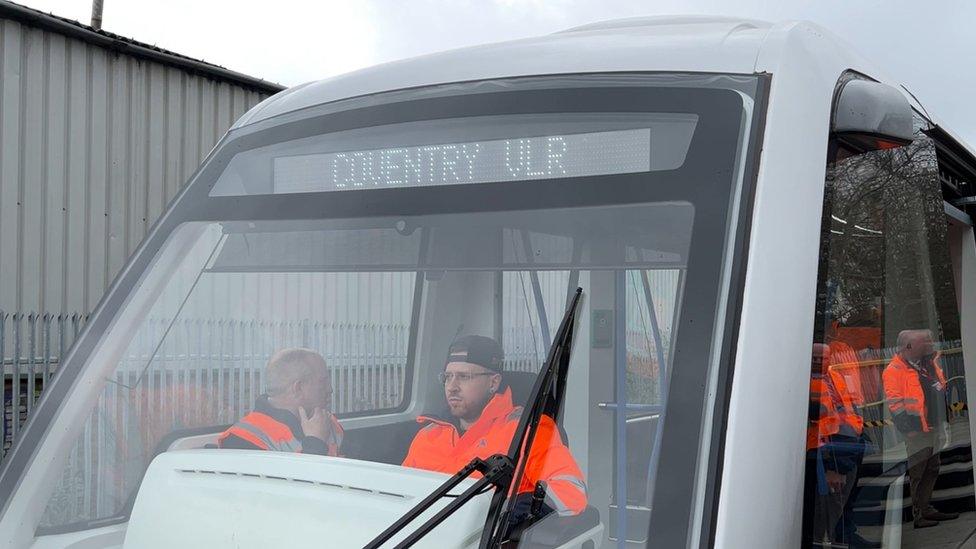
Coventry's Very Light Rail is being tested by engineers at a facility in Dudley
Work to build a cutting-edge tram system in Coventry has been delayed by years after a bid for government cash was rejected, the BBC has learned.
Coventry's Very Light Rail (VLR) has been billed as a cheaper and faster-to-build alternative to traditional trams.
The VLR team - led by the Labour-run Coventry City Council - asked the government for £36.8m in February 2023.
While the business case was rejected, the government said it had approved £15m so far to support testing of VLR.
It was hoped the first passenger route in the city centre would be ready by 2025.
The business plan estimated the project would cost £189m in total.
By throwing out the council's bid for cash, it meant access to funding was restricted, forcing delays in the work.
Coventry city councillor Jim O'Boyle has said he now does not expect VLR to be in public use until at least 2026.
He described the Department for Transport (DfT) as "dysfunctional" and said the government had "no problems in funding HS2 with billions of pounds".
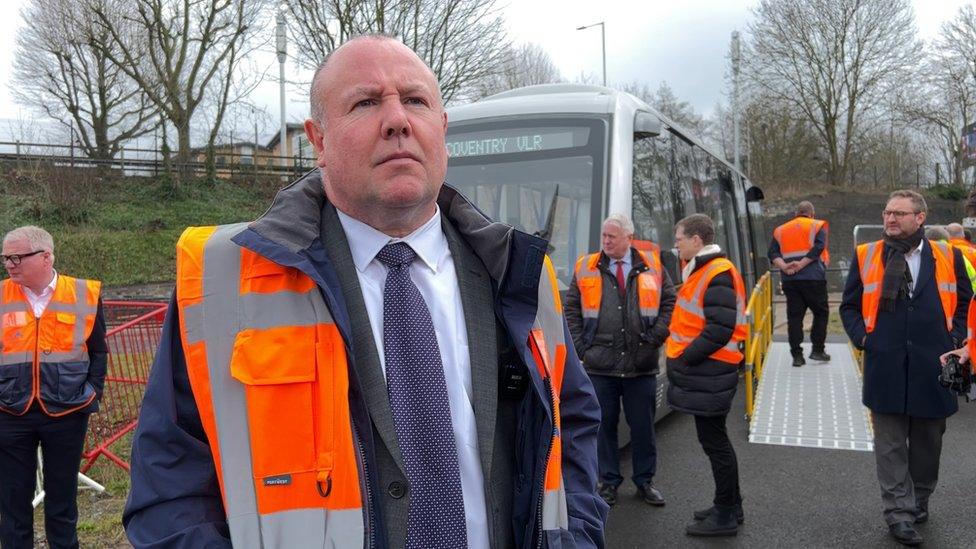
Coventry city councillor Jim O'Boyle described the DfT as "dysfunctional"
When asked if he felt the project was being held back, he said: "The only thing that's holding us back is not us, it's not the private sector, it's the Department for Transport because we've got to go through their hoops and their bureaucracy."
In response, the DfT said: "It's essential that we consider and scrutinise business cases to ensure value for money for the taxpayer and ensure rigorous testing of the technology is carried out to deliver a service in the future."
In response to freedom of information requests, the BBC has been sent a copy of VLR's strategic outline business case and the minutes of a DfT meeting in which the project was discussed on 6 February 2023.
In the meeting, DfT civil servants questioned whether VLR represented good "value for money", and whether Coventry was the right place for it.
Stephen Fidler, co-director of local transport, said "political factors in Coventry" needed to be considered.
One senior council source interpreted that as meaning the government would prefer the first VLR route to be in Birmingham instead of Coventry. But the BBC has been told it was not a party political comment.
The DfT said the overall VLR programme included options on potential routes across the West Midlands.
Demonstrator track
Civil servants also raised "concerns" about the ability of "DfT staff to support on R&D projects, particularly one led by a council team".
And the VLR team "noted it was unclear whether this would deliver different benefits from a bus and this would be unknown until it was tried and tested live".
In an email, sent the day after the meeting, the department rejected the business plan and said VLR should progress as a research and development project instead.
Under a new funding process, the VLR project has to prove the system works in practice to access more government money from a pot worth £40m.
The next step is to test the vehicle on a demonstrator track, which the council plans to build in the city centre later this year.
Beyond the £15m in government funding VLR has accessed so far, it is seeking a further £11m to pay for the demonstrator.
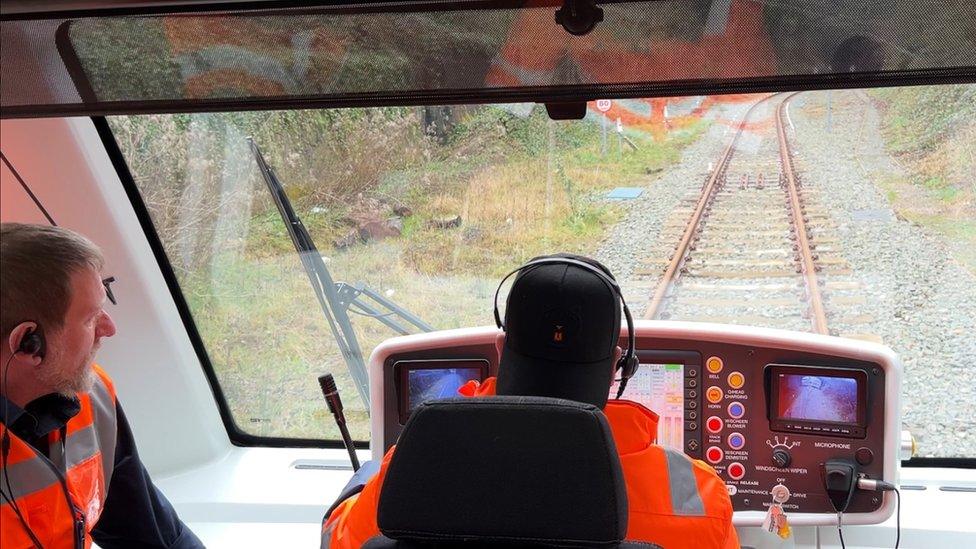
VLR has been described as a battery-powered, zero-emission tram system
The delays and the role of the government in approving funding has raised questions about the future of the project in Coventry.
Norman Baker, a former Liberal Democrat MP and local transport minister, is a supporter of VLR and said there was "a great need to expand light rail in this country".
He said the government should treat VLR as a "pilot on the ground, rather than something on paper to be worked out".
He said the DfT needed to be "more creative and open minded about matters".
"It also in my view needs to change the funding arrangements for local councils, so they can innovate in their own areas without having to go to DfT cap in hand all the time," Mr Baker said.

Follow BBC West Midlands on Facebook, external, X, external and Instagram, external. Send your story ideas to: newsonline.westmidlands@bbc.co.uk, external
Related topics
- Published12 March 2024
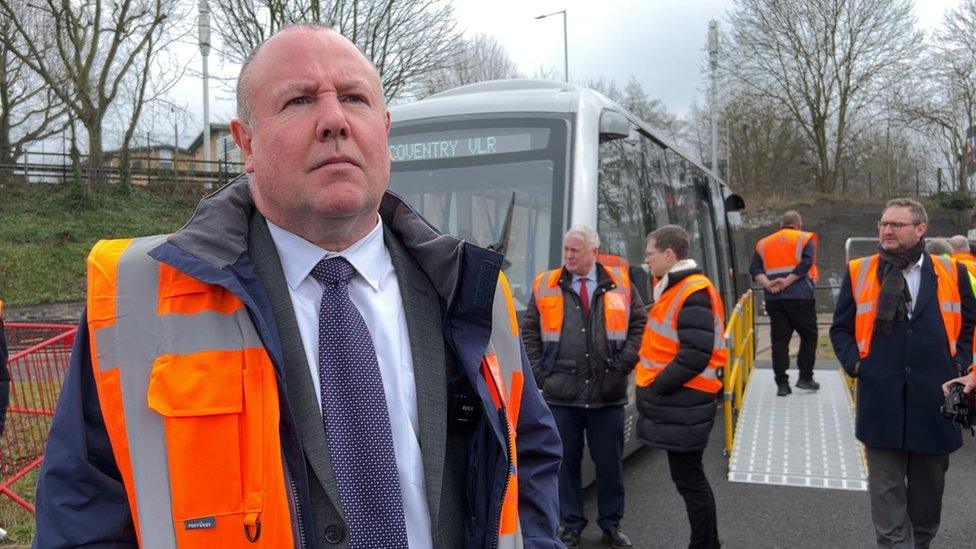
- Published2 November 2023
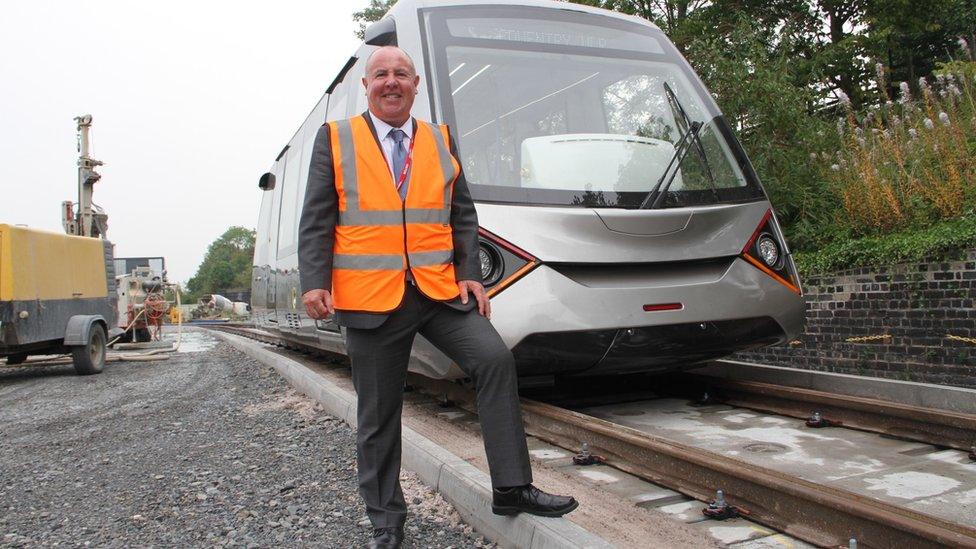
- Published14 January 2022
